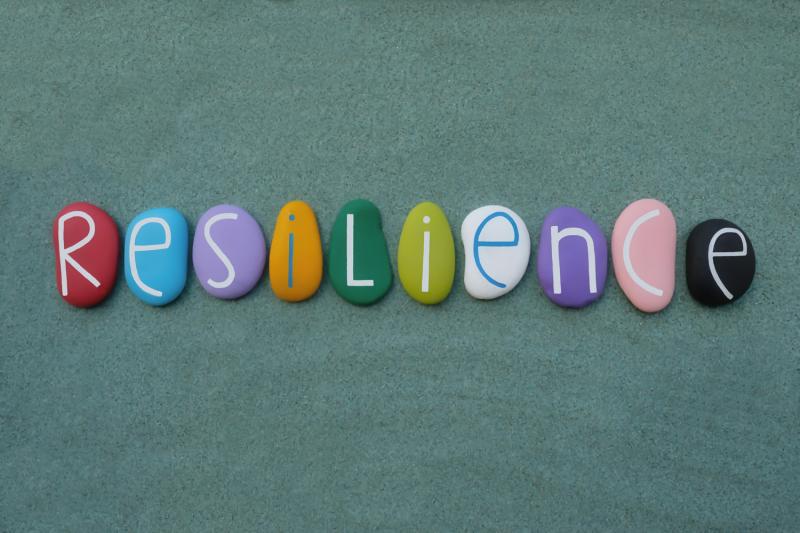Key points
- COVID-19 is a highly contagious virus that leads to mild respiratory infections to severe pneumonia, and in some cases, it can be fatal.
- Older people with multiple health conditions and who live in care homes and facilities are at high risk of COVID-19 infection. Those who care for the older adults within residential aged care settings may also find it challenging and stressful to cope with high workloads and stressors associated with COVID-19 impacts on residents/clients.
- The impact of burnout was particularly pronounced in the aged care workforce during the fifth COVID-19 wave in 2022.
- Aged care workers experienced distress and burnout due to COVID-19 related factors. Some examples included constant fear of contracting and spreading the virus, high job demands, and feeling inadequately prepared.
Coronavirus Disease 2019 (COVID-19), caused by the SARS-CoV-2 virus, is contagious and can result in a range of symptoms from mild respiratory infections to severe pneumonia, and in some cases, it can be fatal. [1] Infection has led to elevated mortality rates globally, and older people are at increased risk. [1, 2] The risk of infection is reportedly higher for older people with underlying multimorbidity and who live in residential aged care facilities. [2] These environments act as an incubator for infection due to high population densities and shared room facilities. [2]
Exposure to the effects of COVID-19 in combination with systems changes (i.e. management of visitors, care provision) to control and prevent the spread of virus have negatively impacted residential aged care workers. [3] The constant exposure to the virus, coupled with the responsibility of ensuring the safety and wellbeing of older residents, can lead to burnout among these workers. [3] The chronic stress and exhaustion resulting from these factors can have detrimental effects on the mental and physical wellbeing of aged care workers. [3]
This evidence theme on COVID-19 is a summary of one of the key topics identified by a scoping review of the staff burnout research. If you need more specific or comprehensive information on this topic, try using our PubMed searches provided below.
The 2022 scoping review found five studies on COVID-19 and staff burnout in aged care workers. [4-8] The 2023 update found an additional nine studies that contributed to this theme. [9-17] The review found deterioration in working conditions for aged care staff in residential aged care facilities at the onset of the global COVID-19 pandemic. [16, 17] Studies from the initial COVID-19 wave in 2020 showed significant increase in emotional exhaustion and depersonalisation, along with lower personal accomplishment compared to the pre-pandemic period. [9, 10, 13, 16] The impact was particularly pronounced for the global aged care workforce during the fifth COVID-19 wave in 2022. [16] Post-pandemic in 2023, managers expressed heightened concerns about staff mental health, including post-traumatic stress disorders, with reports of increased burnout, emotional exhaustion, and poorer mental and physical health. [16] Job positions significantly impact stress and burnout levels. [13] Technical and executive staff reported higher emotional exhaustion and depersonalisation, while direct care staff showed the second-highest levels of emotional exhaustion and depersonalisation, coupled with the highest levels of personal achievement. [13]
There were various stressors experienced by aged care workers during the COVID-19 pandemic, which may have led to one or more symptoms of burnout:
- Fear of contracting and spreading the virus. [6, 7, 10, 11, 15, 16]
- Changes in care delivery and routines. [10, 13, 15]
- Increased workloads (job-demands). [7, 8, 14, 15]
- Increased time spent working. [5]
- Dealing with staff shortages. [6, 7, 13, 16, 17]
- Financial stress related to unpredictability of available work. [11]
- Feeling inadequately prepared, leading to negative attitudes towards work. [13]
- Coping with high rates of resident deaths and insufficient time for mourning. [6, 15]
- Facing media stigma. [17] One study suggested that it had taken an emotional toll on aged care workers and felt burdened by being publicly scrutinised. [7]
- Struggling to obtain sufficient Personal Protective Equipment (PPE) and cleaning supplies. [10, 14, 15]
- Managing additional tasks including having to wear, test and procure PPE. [5, 6]
- Managing alternative care home visits and to manage contact between residents and families. [5]
- Experiencing uncertainties due to frequent changes in public health directives and regulations. [11, 15]
Aged care workers felt frustrated with the inability and lack of visitation from families. [5] Having to oversee family-resident interaction created a prison-like environment, which impacted on their wellbeing. [5] They also felt distressed when witnessing confusion and sadness (i.e., crying) from residents with dementia. [5]
Aged care workers were provided with additional resources during the COVID-19 pandemic, for example, support groups, meditation classes, and designated quiet spaces to increase the awareness of staff mental health. [4] One study found that staff members practicing acceptance of thoughts and emotions during the pandemic demonstrated greater resilience. [12]
- Identify and assess suitability of individual coping techniques (i.e., mindfulness, stress reduction techniques) that can help aged care workers to cope with stressors associated with the pandemic and to enhance physical, mental, and emotional wellbeing.
- Have open communication with managers, colleagues, or support groups and share your experiences, challenges, and coping mechanism. This will allow development of a supportive network within the aged care workforce.
- Actively acknowledge challenges faced by staff (i.e., public acknowledgements, awards) to build a sense of value and appreciation.
- Implement support programs that addresses the concerns about staff mental health. These initiatives can provide tools for the aged care workforce to cope and build on their overall resilience.
- Integrate learnings from the COVID-19 pandemic into current policies for prevention and preparedness of future pandemics.
- Quigley A, Stone H, Nguyen PY, Chughtai AA, MacIntyre CR. COVID‐19 outbreaks in aged‐care facilities in Australia. Influenza Other Respir Viruses. 2022;16(3):429-437.
- Chee SY. COVID-19 pandemic: The lived experiences of older adults in aged care homes. Millennial Asia. 2020;11(3):299-317.
- Tierney L, Doherty K, Elliott K-E. Distressed, detached, devalued and determined: Aged care workers' experiences of the COVID-19 pandemic. Aust J Adv Nurs. 2022;39(3):45-53.
- Franzosa E, Mak W, R Burack O, Hokenstad A, Wiggins F, Boockvar KS, et al. Perspectives of certified nursing assistants and administrators on staffing the nursing home frontline during the COVID‐19 pandemic. Health Serv. Res. 2022;57(4):905-913.
- Giebel C, Hanna K, Marlow P, Cannon J, Tetlow H, Shenton J, et al. Guilt, tears and burnout—impact of UK care home restrictions on the mental well‐being of staff, families and residents. J. Adv. Nurs. 2022;78(7):2191-2202.
- Schulze S, Merz S, Thier A, Tallarek M, König F, Uhlenbrock G, et al. Psychosocial burden in nurses working in nursing homes during the COVID-19 pandemic: A cross-sectional study with quantitative and qualitative data. BMC Health Serv. Res. 2022;22(1):1-13.
- White EM, Wetle TF, Reddy A, Baier RR. Front-line nursing home staff experiences during the COVID-19 pandemic. J Am Med Dir Assoc. 2021;22(1):199-203.
- Corpora M, Kelley M, Kasler K, Heppner A, Van Haitsma K, Abbott KM. “It's been a whole new world”: Staff perceptions of implementing a person-centered communication intervention during the COVID-19 pandemic. J. Gerontol. Nurs. 2021;47(5):9-13.
- Estabrooks CA, Duan Y, Cummings GG, Doupe M, Hoben M, Keefe J, et al. Changes in health and well-being of nursing home managers from a prepandemic baseline in February 2020 to December 2021. J Am Med Dir Assoc. 2023;24(2):148-155.
- Ghezeljeh TN, Shahrestanaki SK, Majdabadi kohne ZA, Fakhari E. Home care nurses’ perception of the challenges they faced during the COVID-19 pandemic: A qualitative study. BMC Nurs. 2022;21(1):314.
- Lind LM, Ward RN, Rose SG, Brown LM. The impact of the COVID-19 pandemic on psychological service provision, mental health practitioners, and patients in long-term care settings: Results from a rapid response survey. Psychol.: Res. Pract. 2023;54(1):93.
- Navarro‐Prados AB, García‐Tizón SJ, Meléndez JC, López J. Factors associated with satisfaction and depressed mood among nursing home workers during the COVID-19 pandemic. J. Clin. Nurs. 2022;33(1):265-272.
- Navarro‐Prados AB, Rodríguez‐Ramírez Y, Satorres E, Meléndez JC. Stress and burnout in nursing home and égida workers during COVID‐19. J. Adv. Nurs. 2024;80;733–744.
- Scheepers RA, van den Broek T, Cramm JM, Finkenflügel H, Nieboer AP. Changes in work conditions and well-being among healthcare professionals in long-term care settings in the Netherlands during the COVID-19 pandemic: A longitudinal study. Hum. Resour. Health. 2023;21(1):59.
- Shamon S, Gill A, Meadows L, Kruizinga J, Kaasalainen S, Pereira J. Providing palliative and end-of-life care in long-term care during the COVID-19 pandemic: A qualitative study of clinicians’ lived experiences. CMAJ Open. 2023;11(4):E745-E753.
- Erjavec K, Leskovic L. Long-term healthcare professionals’ experiences of burnout and correlation between burnout and fatigue: A cross-sectional study. Int. J. Occup. Med. Environ. 2023;36(3):396-405.
- Conejero I, Petrier M, Fabbro Peray P, Voisin C, Courtet P, Potier H, et al. Post-traumatic stress disorder, anxiety, depression and burnout in nursing home staff in south France during the COVID-19 pandemic. Transl. Psychiatry. 2023;13(1):205.
Connect to PubMed evidence
For more research and information on impacts of COVID-19 on staff burnout in aged care, visit our ‘one-click’ searches on PubMed:

